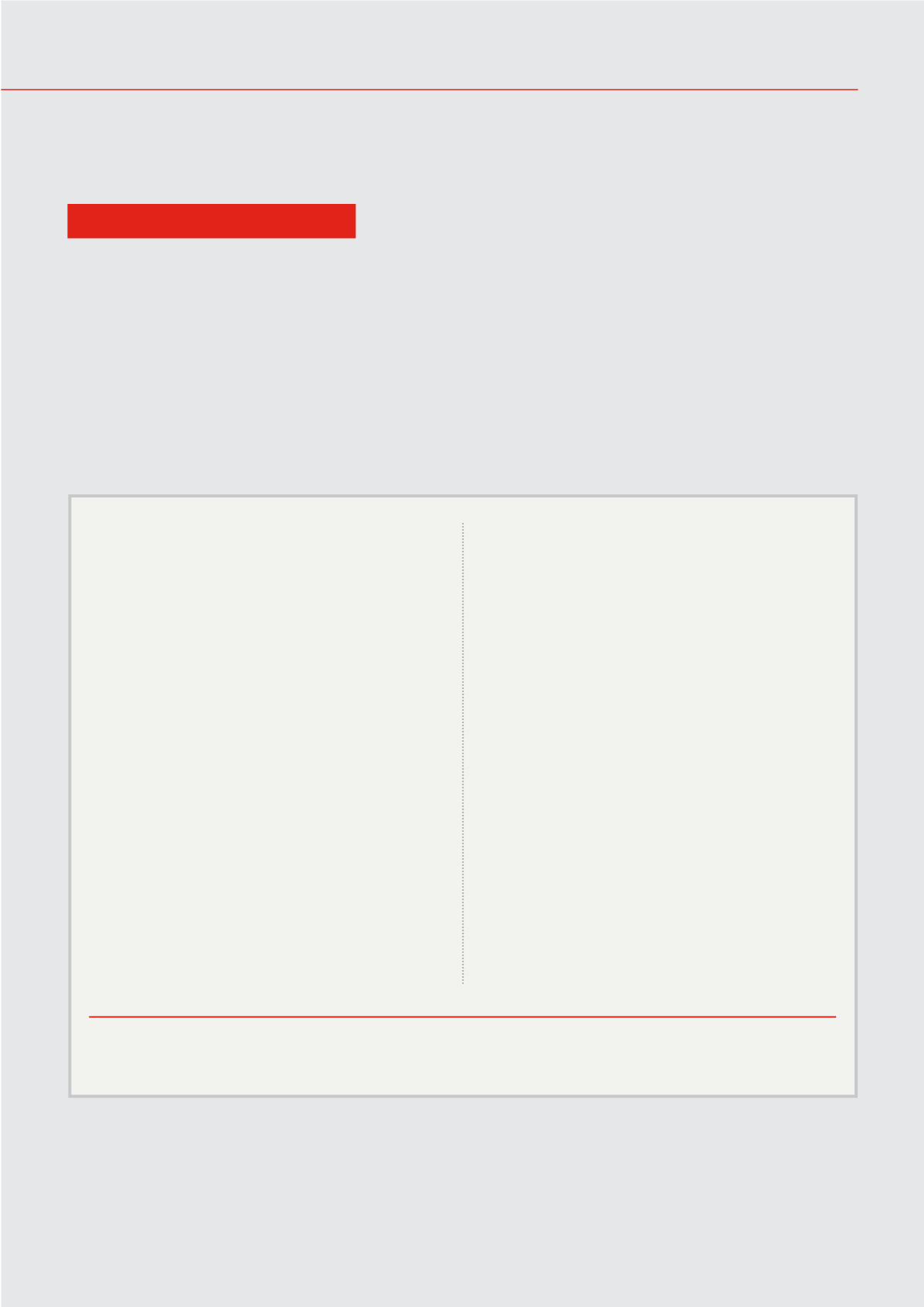
April - June 2015 •
The Lion King
• 51
Language Corner |
Lifestyle
Giving a Shout-Out to your friends in French-Speaking Countries
Hello! Welcome to another edition of your French Language
Column. Pick your phone right now and surprise a colleague
in France or any other French-speaking country with a
greeting in their mother tongue! You may even go ahead
to ask them some questions.
By Jeremiah Afekpor
Alright, you have asked me a lot of ‘How do you say?’.
Now let me see how attentive you have been. Say you met
with the Director of a company in Gabon who is a friend.
Engage him in the following conversation but in French.
CHIEF: Good morning Sir
JNR: Good morning Sir. How are you?
CHIEF: I am fine, thank you, and you?
JNR: I am fine too.
CHIEF: How are your children?
JNR: hey are fine, thank you, and how is your wife?
CHIEF: She is fine. Thanks.
CHIEF: Good morning
UNCLE: Bonjour (say ‘Boŋ-jhoo’. ‘ŋ’ is pronounced like
the n in sink, anger. Remember it is not ‘born-
jew’. The ‘j’ is a fricative sounding like ‘jh’)
CHIEF: Good afternoon
UNCLE: Bonjour (say ‘Boŋ-jhoo’). ‘Bon’ means ‘good’
and ‘jour’ means ‘day’, and since morning
and afternoon are both day, French sees no
big difference. However, some greet ‘bonsoir’
(say Boŋswar) which is the same word for good
evening. So anytime a French person tells you
‘bonjour’ or ‘bonsoir’, pls check your time. It
might not be what you think!
CHIEF: Good evening
UNCLE: Bonsoir
CHIEF: Good night
UNCLE: Bonne nuit/Bonne soirée (say ‘Bonn noo-wee/
Bonn-swa-ray’)
CHIEF: sir/madam
UNCLE: monsieur/madame. (Say ‘Mos-yo/ma-dam’)
CHIEF: young man/young lady
UNCLE: monsieur/mademoiselle. (Say ‘Mos-yo /mad-
moowa-zell’)
CHIEF: Good day sir
UNCLE: Bonjour monsieur (say ‘Boŋ-jhoo Mos-yo’)
CHIEF: How are you?
UNCLE: Comment ça va? (say ‘Commoŋ sa va’)
CHIEF: I am fine and you?
UNCLE: Ça va bien et vous? (say ‘Sava bee-aŋ ay voo’)
You don’t know what to say? Ask me. Just give me the
English sentence and I’ll give you the French equivalent.
Permit me to bear the name Uncle while I call you Chief.
Here are some useful expressions with their pronunciation.
CHIEF: I am also fine
UNCLE: Moi aussi ça va bien (Say ‘Moo-wah oh-see sa
va bee-yaŋ’)
CHIEF: Thank you
UNCLE: Merci (Say ‘Mercy’. Don’t forget it should be
pronounced ‘merCY’)
CHIEF: Don’t mention
UNCLE: De rien (‘Doh-ree-aŋ’)
CHIEF: How are your children?
UNCLE: Comment vont vos enfants (Say ‘Commoŋ voŋ
voz oŋfoŋ’)
CHIEF: How is your wife?
UNCLE: Comment va votre femme (Say ‘Commoŋ va
votro fam’)
CHIEF: And how is your husband?
UNCLE: Et comment va votre mari (Say ‘Ey commoŋ va
votro marry’)
CHIEF: Fine, thank you
UNCLE: Bien merci (say ‘bee-yaŋ mercy’)
CHIEF: Good bye
UNCLE: Au revoir (say ‘oh-ro-voo-wa’)
CHIEF: Safe journey
UNCLE: Bon voyage (say ‘Boŋ voo-wa-yajh’)
CHIEF: Welcome
UNCLE: Bienvenue (say ‘Beeyaŋ-vo-new’)
CHIEF: Sweet dreams
UNCLE: Faites de beaux rêves (say ‘Fet doh boh rev’)
CHIEF: Good luck
UNCLE: Bonne chance (say ‘Bonn shoŋs’)
Language
Corner
Note
that French words are generally stressed on the last syllable. So vision is pronounced viSION (like aBOUT), not
VIsion, and nation is pronounced naTION (like aBOUT), not NAtion. Where a pronunciation looks like an English word,
do pronounce it like one.


